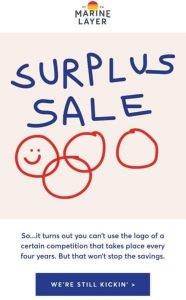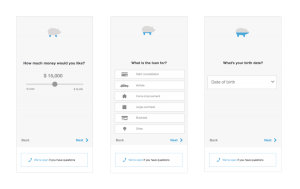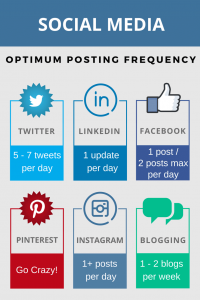
As a journalist, interviewing people is one of my favorite parts of the job.
Sure, I get a little jittery every time I have to talk to someone I haven’t met before or someone especially important in the community for which I’m writing. I’m sure the person on the other end of the interview might also feel some of those same jitters.
The best part about journalism, for me, is getting the chance to meet and talk to a wide variety of different people about a wide variety of different things. I’ve talked with CEOs of major startups, head coaches of major college sports teams, professional athletes, and more. When you connect with an interview subject and really click throughout the whole conversation, it gives you a rush and makes actually producing the content 100 times easier.
No matter how good of a journalist you are, and no matter how much research you do on your own, your material is incomplete if you haven’t interviewed the applicable people. It’s a necessary part of the job, and it is necessary that you do it well.
Marketers with strong interview and communication skills are a huge asset. It is very important to speak with your customers frequently to find out what they want from you as a marketer and how you can better serve their needs.
Here are a few tips that I think about during my interviews and some ways they can be applied to your own work as a marketer.
Have a conversation before turning on the recorder
Before every interview I conduct, I like to chat with the subject for a bit with my recorder off. It doesn’t have to be long and it doesn’t have to be a really substantial conversation – it can be something as simple as a small-talk observation about the weather or an interesting piece of news you heard recently.
Most of the people I interview for the student newspaper at Boston College are not used to media interviews, so they instinctively want to go into ultra-PR mode and spit out cliches until the sun goes down. By having a brief conversation about something trivial without it being recorded, you get a chance to introduce yourself, get comfortable with your guest, and establish a bit of a rapport before asking for the information that really matters. It puts both of you at ease.
The same goes for marketers – don’t do too much, too quick. Be polite and engage him or her briefly in a small-talk conversation before asking what you need. But make sure you’re not wasting time, either.
If you have been working with this customer for an extended period of time, you can take much more liberty here and have a bit of a longer conversation.
Key Questions:
- How is your day going?
- What are you working on today?
Start from the beginning
No matter the theme of the interview, the age of the interview subject, or anything like that, I like to ask about background information all the way back to the subject’s childhood. How were they raised? Did they have the same passions, drives, or interests while they were much younger? If yes, what spawned that, and if not, why did they change?
Even if some of this background information is not directly applicable to the information you’re looking to acquire, it can help explain motivations, reasonings, and the underlying details that really put your content over the top.
So leave no stone unturned. You can’t possibly know everything about the subject of your interview going into it, so take the golden opportunity you have to find out as much information as possible.
Key Questions:
- With which other marketing companies have you done business?
- What were your favorite and least favorite things about working with that company?
- Why did you stop working with that firm?
Listen and ask follow-up questions
When I first began conducting interviews, I came into the meeting with a set list of questions and stuck directly to that. Since I knew I was recording the interview, I didn’t pay especially close attention to what the interviewee was saying. I would just ask the next question I had written down after he or she finished talking each time.
That is just about the worst lull you can fall into.
Now that I’m a bit more experienced in interviewing, I realize that the best information comes from little hints that you get in the interview. Your subject might briefly mention a fact, or an opinion, or something generally interesting about his background that you didn’t know about before. Once that happens, you need to pounce on it and learn as much as you can about it.
Have a set plan, but be prepared to deviate. An interviewer who sticks exclusively to his or her prepared questions is not an interviewer. A lot of the most interesting information you can acquire is not right on the surface.
Key Questions:
- An example doesn’t do this point justice – every follow-up question will look completely different. The most important point here is to actually process the words that your customer says and respond accordingly.
At the end of the interview, ask what they want to talk about
When I’m finished asking questions at the end of every interview, I finish with, “Is there anything you want to talk about that we didn’t cover in this conversation?”
Now, I wouldn’t do this if I needed to get hard answers for a deadline story, but if I was writing a special interest feature about a person close to a specific community, I would offer them a chance to talk about whatever was on their mind. You’re not obligated to use all of the information from the interview, so if it ends up being too self-important or PR-centric, just toss it aside.
A lot of times, people come in with topics they want to talk about, but they can’t find a place in the interview to talk about it. Asking an open-ended question at the end of the interview allows the subject to mention whatever has been on their mind the entire time.
Sometimes when I ask this, I’ll strike gold and find the focus of my feature – if that happens, it’s not the end of the interview anymore. Sometimes, I’ll strike out and the subject will just say, “Nope, I think we got it all.”
But regardless of what happens, it’s always worth a shot. Asking a question like this shows empathy for the interests of the subject and it gives them a chance to express themselves.
An interview should be a conversation, not an interrogation. Direct the line of dialogue such that it doesn’t go off the rails, but allow the subject a little bit of time to talk about what he or she wants. Expressing empathy for the interest of the interview subject can go a long way in building a beneficial relationship for both sides. You’ll get better answers to the questions you do ask and you’ll get some additional insight into just how your subject’s brain ticks.
Key Questions:
- What are you looking for from our company?
- In your opinion, how can I be of the most service to you?
What are some of your favorite interview or marketing tactics? What hasn’t worked so well for you in the past?
Business & Finance Articles on Business 2 Community(90)







